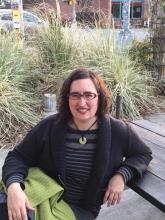The Leadership Conference on Civil and Human Rights describes transportation as a central social justice issue, because it connects us to jobs, schools, health care, social services, and food. Many of us take such access for granted. But for people with low incomes, seniors, and people with disabilities, among others, access to transportation can be challenging.
Car ownership is expensive; lower-income families may be unable to afford insurance, gas, and maintenance. According to the 2010 US Census, one in 11 households in Orange County does not have access to a car. Some of us cannot drive, some can’t afford to, and some choose other forms of transportation. Others of us live in areas that have been left out by inadequate transportation systems that give priority to the needs of some populations at the expense of others.
Although poor weekend and nighttime bus service merely inconveniences some, it can mean an inability to keep a job for others. People with lower incomes are more likely to have evening and weekend employment. A recent report by the Brookings Institution points out that most jobs in urban areas are near transit stops, but most workers have lengthy commutes that make these jobs impractical to reach. Long commutes also restrict opportunities to participate in other elements of civic life, such as health care, community organizations, and even voting. Good public transit systems promote full participation in civic life for all.
The Orange County transit plan will expand access for the whole county. The plan calls for more bus hours and new routes in rural areas, increased service in Chapel Hill and Carrboro, an Amtrak train station in Hillsborough, and bus rapid transit along Martin Luther King Jr Boulevard in Chapel Hill. These enhancements will connect rural areas to population centers, place more people within an easy commute to workplaces, and bring lower-income residents and others to vital social services. In the long term, the plan will support a light rail transit line from UNC Hospitals in Chapel Hill to S. Alston Avenue in Durham, linking Orange County residents to employment opportunities in Durham County and vice versa.
Public financing of new roads and parking structures, like the Eno River Parking Deck recently purchased by the county for $1.6 million, encourages the use of cars, leads to more traffic and pollution, and expends resources that could be dedicated to improving the lives of lower-income residents. Alarmingly, many cities have seen declines in support for public transit as urban sprawl has brought us larger highways, bigger parking decks, and higher-speed roads without sidewalks and bike lanes. This pattern of development exacerbates social isolation, apathy toward the welfare of neighbors, and erosion of community.
An improved transit system will benefit all county residents by supporting economic development, expanding opportunities for social participation, and encouraging denser development that takes pressure off rural areas and preserves open spaces. It will especially benefit neighbors who today have poorer access to jobs, health care, education, and engagement in civic life.
A community is stronger when all people are able to engage fully in public life. Please join us in voting for the Orange County transit tax on November 6.
By Molly De Marco, Seth LaJeunesse, and Damon Seils
[A version of this post appears in the September 27, 2012, issue of the Carrboro Citizen.]
Issues:



Comments
well written Molly
well written Molly, though I'd say "Please join in voting for the Orange County transit tax starting October 18 !"
Transportation justice
Thank you, Molly, Seth, and Damon, for articulating why accesssible and affordable transportation is a social justice issue. This article really is only the top of the iceberg when you start to think of the the repercussions of a community of people in cars on highways versus one on busses and sidewalks.When we invest in a network of walkable spaces with bike and transit connections, we are building the infrastructure of our public relationships, not just our commuter patterns.